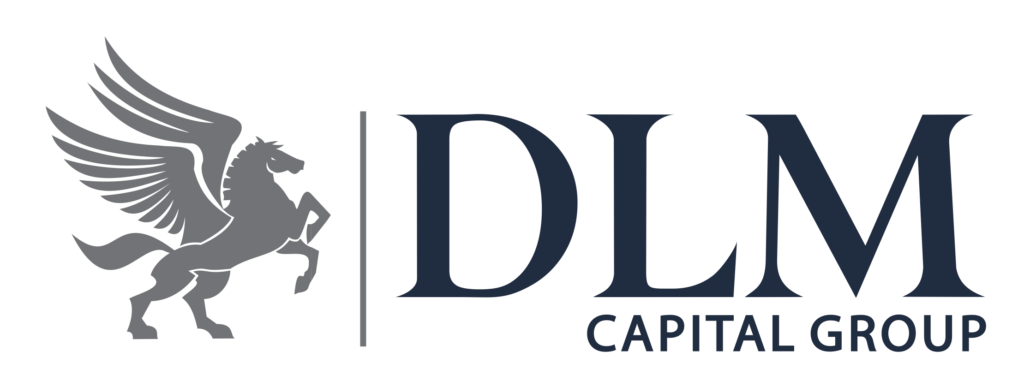Introduction to Securitization in Nigeria
Assume you’re a Nigerian bank with hundreds of loans in your portfolio, including mortgages, vehicle loans, and even small business loans. These loans represent money that might be utilised to create new loans, but they are now locked up. This is when securitisation becomes a game changer. It converts these debts into marketable securities that can be sold to investors, so freeing up cash and distributing risk throughout financial markets.
In Nigeria, securitisation is a new financial strategy with the potential to boost capital market liquidity. This method benefits both financial institutions and investors by allowing them to offer more loans and get access to new investment possibilities.
Understanding securitisation is essential for a country that prioritises financial innovation and infrastructure expansion. Securitisation makes the capital market more dynamic by releasing the value of illiquid assets, opening the door for long-term economic growth.

What Is Securitization?
Securitisation is becoming more widely acknowledged as a game-changing financial instrument in the Nigerian capital market. What does that signify, though? The process of turning illiquid assets, including loans, receivables, or mortgages, into marketable securities is known as securitisation. This is how it operates: For example, a bank may pool a collection of loans (such vehicle or mortgage loans) and sell them to a Special Purpose Vehicle (SPV). The cash flows from these loans are then used by the SPV to issue securities.
By removing loans off their balance sheets, Nigerian banks and other financial institutions can free up funds for additional lending. By purchasing asset-backed securities (ABS) or mortgage-backed securities (MBS), investors can diversify their portfolios through securitisation. These securities are a desirable choice for mutual funds, pension funds, and individual investors since they offer consistent returns that are determined by the performance of the underlying assets.
In Nigeria, as more financial institutions adopt securitization, the capital market is expected to grow, offering greater liquidity and investment opportunities
How Does Securitization Work in the Capital Market?
In the capital market, securitisation is the process by which a business or organisation (often a bank) turns illiquid assets—like loans or receivables—into tradable securities. The risk is essentially transferred to investors when these assets are sold, freeing up funds so the organisation may make additional loans. These assets can be exchanged on the capital market, giving investors the opportunity to purchase and sell them in accordance with their risk tolerance and expected returns.
Here’s a step-by-step breakdown of how securitization works:
- Asset Pooling: The originator (usually a bank or financial institution) selects a pool of assets, typically loans like mortgages, auto loans, or credit card receivables. These assets are bundled together into a portfolio.
- Creation of a Special Purpose Vehicle (SPV): The assets are transferred to a legally separate entity called a Special Purpose Vehicle (SPV). The SPV isolates the financial risk of the assets, ensuring that if the originator faces financial difficulties, the securitized assets remain unaffected.
- Issuance of Securities: The SPV issues securities (such as bonds) to investors. These securities are backed by the cash flows from the pool of assets (i.e., the payments made by borrowers on the underlying loans). The securities are usually divided into tranches based on different levels of risk and return.
- Sale to Investors: The securities are sold in the capital market, where investors, such as pension funds, insurance companies, and mutual funds, purchase them. Each investor receives returns based on the performance of the underlying assets.
- Cash Flow Distribution: As the borrowers make payments on their loans, the servicer collects these payments and distributes them to the investors in proportion to the securities they hold. Senior tranche holders, who assume less risk, are paid first, while junior tranche holders, who bear more risk, receive higher potential returns.
Typical Use Case: Mortgage-Backed Securities (MBS)
A typical use case of securitization is the creation of Mortgage-Backed Securities (MBS). Here’s an example from the Nigerian capital market:
- Scenario: A Nigerian bank has a portfolio of residential mortgages valued at ₦10 billion. The bank wants to free up this capital to issue more loans to homebuyers, but the mortgages are long-term, and the funds are tied up.
- Securitization Process: The bank bundles these mortgages and sells them to an SPV. The SPV then issues mortgage-backed securities (MBS) to investors. These MBS are backed by the cash flows from the mortgage repayments.
- Investors: Pension funds, mutual funds, and individual investors purchase these MBS in the Nigerian capital market, seeking a steady stream of income from the mortgage payments.
- Result: The bank receives capital from the sale of the mortgage pool to the SPV, which it can now use to issue more loans. Investors receive regular payments as homeowners continue to pay off their mortgages. The risk of loan default is distributed across multiple investors, reducing the bank’s exposure to individual loan failures.
Key Participants in Nigeria’s Securitization Market
In Nigeria, the securitization process involves several key players, each contributing to the efficient functioning of the capital market:
- The Originator: Typically, a financial institution such as a bank or microfinance institution, the originator creates the loans or assets that will be securitized. For instance, Nigerian banks with large portfolios of real estate mortgages or personal loans often act as originators.
- Special Purpose Vehicle (SPV): The SPV is a legally independent entity that purchases the loan portfolio from the originator and issues securities backed by these assets. In Nigeria, these SPVs are crucial for mitigating the risks involved in securitization, ensuring the originating institution’s credit risk does not impact the investors.
- Investors: Investors in the Nigerian capital market include pension funds, insurance companies, asset managers, and individual investors. These investors purchase the securities issued by the SPV and receive returns based on the cash flows generated from the underlying assets.
- Servicers and Trustees: The servicer, often the original lender, manages the repayment collection process, ensuring borrowers continue making payments on the underlying loans. Trustees are responsible for overseeing the entire process, ensuring that payments are distributed according to the terms of the securitization.
- Rating Agencies: Rating agencies play a key role in evaluating the risk level of each tranche, assigning credit ratings that help investors make informed decisions.
In the Nigerian market, these participants form the backbone of the securitization ecosystem, working together to ensure transparency and security.
Types of Securitization in Nigeria: MBS, ABS, and More
The Nigerian securitization market is gradually expanding, with two primary types of securitized products gaining traction: Mortgage-Backed Securities (MBS) and Asset-Backed Securities (ABS). Each type serves different financial needs and risk profiles.
- Mortgage-Backed Securities (MBS): In Nigeria, MBS are securities that are backed by pools of residential or commercial real estate loans. For example, a bank in Lagos may bundle several mortgages and sell them to an SPV, which then issues securities backed by the repayment of these mortgages. Investors in MBS receive returns based on the interest and principal payments made by homeowners or real estate investors.
- Asset-Backed Securities (ABS): While MBS focus on real estate loans, ABS are backed by a broader range of assets. These can include auto loans, credit card receivables, and even microloans issued to small businesses. In Nigeria, ABS are becoming a popular investment vehicle as they offer diversification, allowing investors to spread their risk across different asset classes.
- Collateralized Debt Obligations (CDOs): Though still in the early stages in Nigeria, CDOs represent another form of securitization where a variety of debt obligations, such as corporate bonds or loan portfolios, are bundled together. These products offer high returns but also carry higher risk due to the complex structure of the underlying assets.
As Nigeria’s capital market evolves, securitization is expected to expand beyond MBS and ABS, introducing new investment opportunities for both local and international investors.
Risks and Challenges of Securitization in Nigeria
Securitisation has many advantages, but there are drawbacks as well, especially in a developing economy like Nigeria. The absence of transparency is one of the main dangers. Investors may occasionally find it challenging to evaluate the calibre of the underlying loans in securitised instruments. This can result in bad investing choices, as the 2008 global financial crisis demonstrated.
Moreover, default risk is still a problem. The cash flows supporting securitised instruments like mortgage-backed securities (MBS) and asset-backed securities (ABS) are impacted by the constant risk of borrower default in a market where economic conditions might fluctuate. This may result in reduced profits for investors or, in the worst situations, the complete loss of their capital.
The regulatory environment presents another difficulty. Even though Nigeria’s capital markets have advanced, stricter regulations on securitisation are still required. There is a chance of market manipulation or inadequate securitised product structure in the absence of strict regulation, which might cause serious financial instability. Additionally, there is a learning curve for investors and financial institutions alike because securitisation is still a relatively new practice in Nigeria.
To maintain transparency, control risk, and avert possible market collapses, rating agencies and financial authorities must establish strong frameworks.
In conclusion, securitisation has a lot of potential to change the financial landscape of Nigeria, but in order for the market to expand sustainably, these risks and difficulties need to be properly addressed.
Real-World Example: Mortgage-Backed Securities (MBS) in Nigeria
One well-known example of securitisation is the growth of Mortgage-Backed Securities (MBS) in Nigeria. The Nigerian Mortgage Refinance Company (NMRC) is a major contributor to the expansion of the MBS industry. Mortgage lenders receive funds by refinancing their loan portfolios, which enables them to provide further mortgages. The NMRC buys house mortgages from regional banks in pools and uses them to produce securities. Investors, such as insurance companies and pension funds, can then purchase these MBS; their profits will be contingent on homeowners’ mortgage repayments.
A Lagos bank would, for instance, bundle many home loans and sell them to the NMRC, which would securitise and offer them as MBS. The bank’s exposure to long-term debt is reduced when homeowners make regular payments, and investors get a stable flow of income.
The introduction of MBS in Nigeria has made it possible for more Nigerians to purchase houses and has given institutions a dependable option for investments.
Frequently Asked Questions (FAQs)
- What is securitization in Nigeria?
Securitization in Nigeria involves converting loans or other financial assets into marketable securities. This allows banks and financial institutions to raise capital by selling these securities to investors, freeing up funds for further lending. - How does securitization benefit Nigerian banks?
Securitization provides liquidity, allowing Nigerian banks to remove loans from their balance sheets and raise capital. This enables them to issue more loans while managing risk. - What types of assets are securitized in Nigeria?
Common assets securitized in Nigeria include mortgages (through Mortgage-Backed Securities), auto loans, and other forms of debt such as credit card receivables and personal loans. - What are the risks of securitization in Nigeria?
Key risks include lack of transparency, default risk, and potential market volatility. Regulatory oversight is crucial to managing these risks. - How does securitization support Nigeria’s housing market?
Securitization helps provide liquidity to mortgage lenders, enabling them to issue more loans. This supports home ownership by making financing more accessible to Nigerians.
Conclusion and Future Outlook for Securitization in Nigeria
Securitisation has the ability to open up new channels for capital generation and economic expansion in Nigeria as it develops further. Securitisation can assist Nigerian banks in increasing liquidity, lowering risk, and providing both domestic and foreign investors with alluring investment options by turning illiquid assets into marketable securities. Its success, though, hinges on creating an open regulatory environment that safeguards investors and encourages financial sector innovation.
Securitisation in Nigeria appears to have a bright future, especially as more investors and financial institutions become knowledgeable about these products. Through improved credit availability and a more active capital market, Nigeria has the potential to evolve into one of Africa’s centres for securitised goods, propelling economic expansion.




